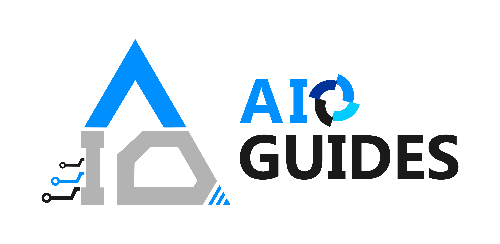Supply Chain Network Optimization: A Comprehensive Guide

Introduction of Supply Chain Network Optimization
Supply chain network optimization is the strategic process of designing, assessing, and refining the supply chain to achieve maximum efficiency and effectiveness. Think of it as tuning a guitar; each string (or component) needs to be in perfect harmony to produce the best sound.

Why is it essential?
Have you ever wondered why some businesses can deliver your items in a flash while others take their sweet time? Or why certain companies can offer products at competitive prices while others can’t? The magic lies in an optimized supply chain. In a world driven by customer demands and cut-throat competition, having a streamlined supply chain can make or break a business.

The Pillars of Optimization
The Pillars of Optimization encompass data analytics for informed decision-making, integration for seamless functionality across processes, and flexibility to adapt and evolve amidst changing conditions. These foundational elements guide efficient and effective operations, ensuring businesses can meet challenges head-on and thrive in dynamic environments. Embracing these pillars is pivotal for modern enterprises aiming for growth and sustainability.

Data Analytics
In our modern age, data is the new oil. By employing the power of data analytics, companies can read demand, identify inefficiencies, and make informed opinions. Flashback to the last time you prognosticated rain by looking at the shadows. Data analytics is like that but with numbers guiding the way.

Integration
Supply chain components, when working in isolation, can lead to inefficiencies. Integration ensures that every piece of the puzzle, from suppliers to distributors, is in sync. Imagine a relay race; the baton pass is crucial. If one runner stumbles, the entire team suffers.

Flexibility
A Supply Chain Network Optimization can adapt to changes swiftly, be it sudden demand spikes or unforeseen disruptions. Like a willow tree bending in the wind instead of breaking, a flexible supply chain can weather any storm.

Benefits of Optimization
Supply Chain Network Optimization leads to significant cost reductions by streamlining operations, enhances customer service through improved efficiency, and mitigates risks by foreseeing and addressing potential disruptions. Embracing optimization positions businesses for success, ensuring they remain competitive and resilient in ever-evolving markets. In essence, optimization is the keystone to unlocking an enterprise’s full potential.

Cost Reduction
By identifying and eliminating inefficiencies, companies can significantly reduce operational costs. It’s like finding a shortcut on your daily commute, saving both time and fuel.

Improved Customer Service
With faster delivery times and accurate forecasting, Supply Chain Network Optimization customer satisfaction levels soar. It’s akin to a chef predicting your favorite dish and having it ready as you walk in.

Risk Mitigation
An optimized supply chain can anticipate and address potential disruptions, ensuring a smooth flow of goods. Have you ever packed an umbrella foreseeing rain? That’s risk mitigation in action.

Real-World Applications
Real-world applications of Supply Chain Network Optimization are evident in sectors like retail, where timely inventory management and order fulfillment are crucial, and in manufacturing, where production schedules and raw material acquisition are optimized for efficiency. By harnessing optimization techniques, industries can meet consumer demands effectively, demonstrating how theory translates into practical, tangible results.

Retail
With e-commerce booming, retailers rely heavily on supply chain optimization to manage inventory, fulfill orders promptly, and enhance customer experience. Remember the joy of receiving a package earlier than expected? That’s optimization at work.

Manufacturing
Manufacturers utilize Supply Chain Network Optimization to ensure timely raw material delivery, maintain production schedules, and reduce downtimes. Think of it as a well-oiled machine where every cog plays its part to perfection.

Overcoming Challenges
Overcoming Challenges often involves navigating technology barriers and adapting to new tools, coupled with addressing implementation hurdles that arise during process transitions. Embracing change, investing in training, and fostering a culture of adaptability are key strategies to transform challenges into opportunities for growth and innovation.

Technology Barriers
While technology is a boon, not all companies have the resources or knowledge to implement advanced tools. Overcoming this requires investment in training and infrastructure. FlashBack the first time you tried a new contrivance.

Implementation Hurdles
Changing established processes can face resistance. It requires a top-down approach, with leaders championing the cause and ensuring a seamless transition. Remember when you switched from a manual to an automatic car? Initial hiccups are part of the journey.

The Future of Supply Chain Optimization
The Future of Supply Chain Optimization is poised to embrace cutting-edge technologies like AI and blockchain, revolutionizing traditional processes. As sustainability gains prominence, green supply chain practices will become integral, ensuring both efficiency and environmental responsibility. This evolution promises a landscape where supply chains are smarter, faster, and more planet-friendly.

Innovative Technologies
From AI to blockchain, emerging technologies promise to revolutionize the supply chain landscape. Imagine a world where drones deliver your packages and AI predicts your shopping list. The future is exciting!

Conclusion
In conclusion, Supply Chain Network Optimization is not just a business strategy but a necessity in today’s competitive global landscape. It harmonizes processes, leverages technology, and ensures a seamless flow of goods from origin to consumer. With the interplay of advanced technologies and sustainability, supply chain optimization will be at the heart of businesses that not only succeed but also leave a lasting positive impact on the world. Embracing its principles is the way forward for enterprises aiming for long-term growth and resilience.
FAQs of Supply Chain Network Optimization: A Comprehensive Guide
Why is Supply Chain Network Optimization essential?
It's crucial for reducing operational costs, meeting customer demands promptly, and mitigating risks associated with disruptions, ensuring a competitive edge in the marketplace.
How does data analytics fit into Supply Chain Optimization?
Data analytics plays a pivotal role by providing insights into demand forecasting, identifying inefficiencies, and enabling informed decision-making for continuous improvement.
What challenges might businesses face during optimization?
Companies may encounter technology barriers, resistance to change, implementation hurdles, and the need for significant investment in both tools and training.
How will the future of Supply Chain Optimization look with emerging technologies?
The future is promising with the integration of AI, blockchain, and other technologies, making supply chains smarter, more efficient, and focused on sustainability.
Supply Chain Network Optimization: A Comprehensive GuideHow Do You Like Our Post
0






